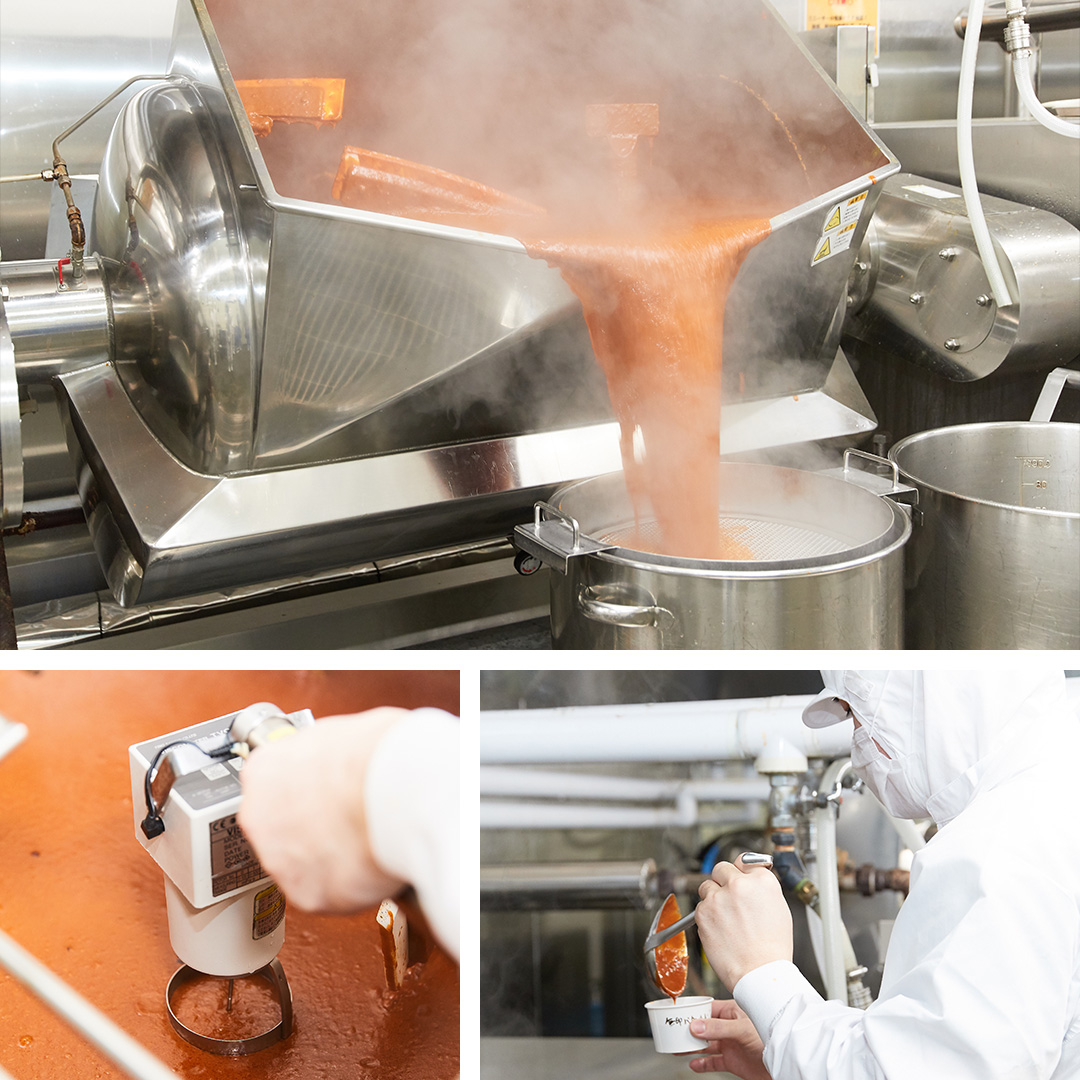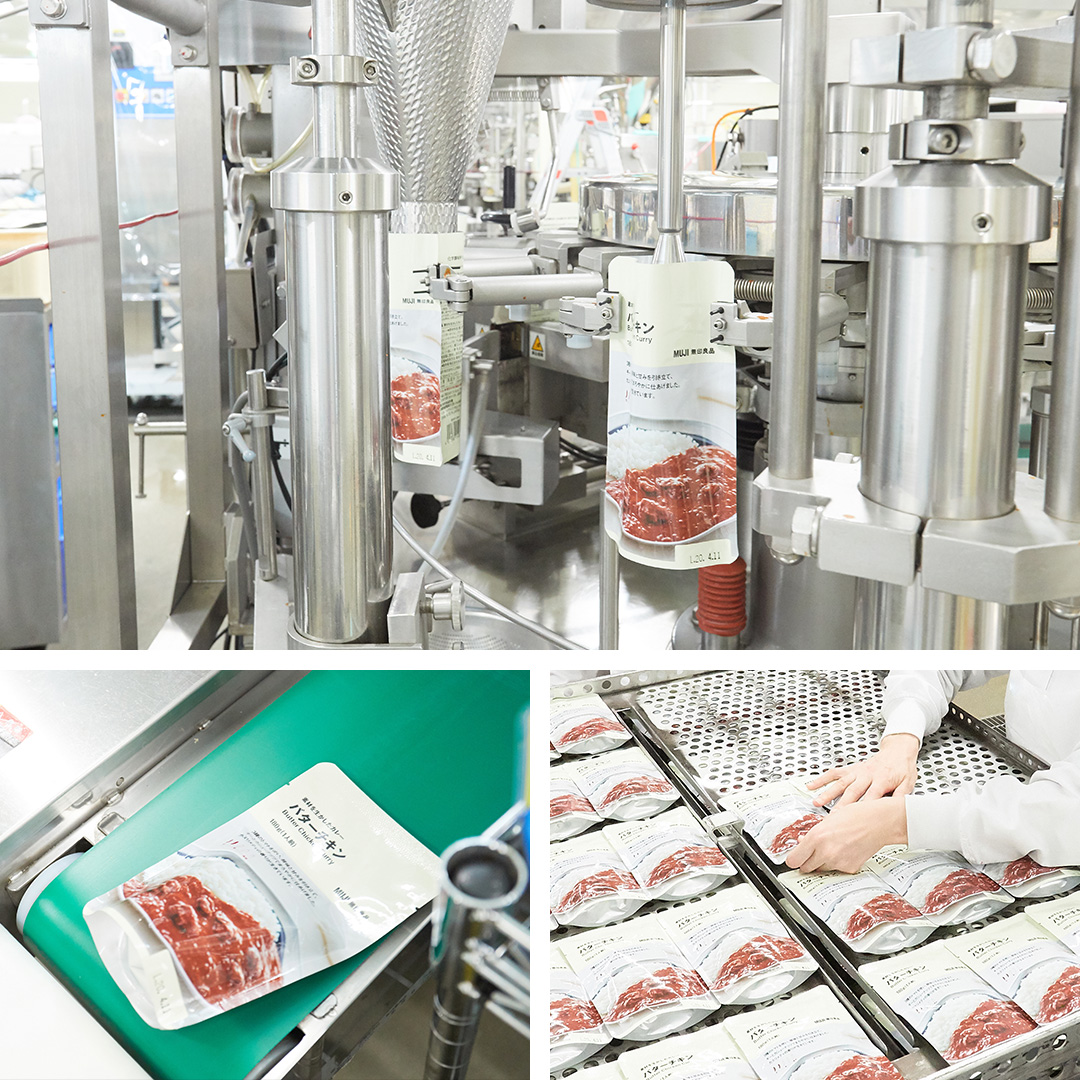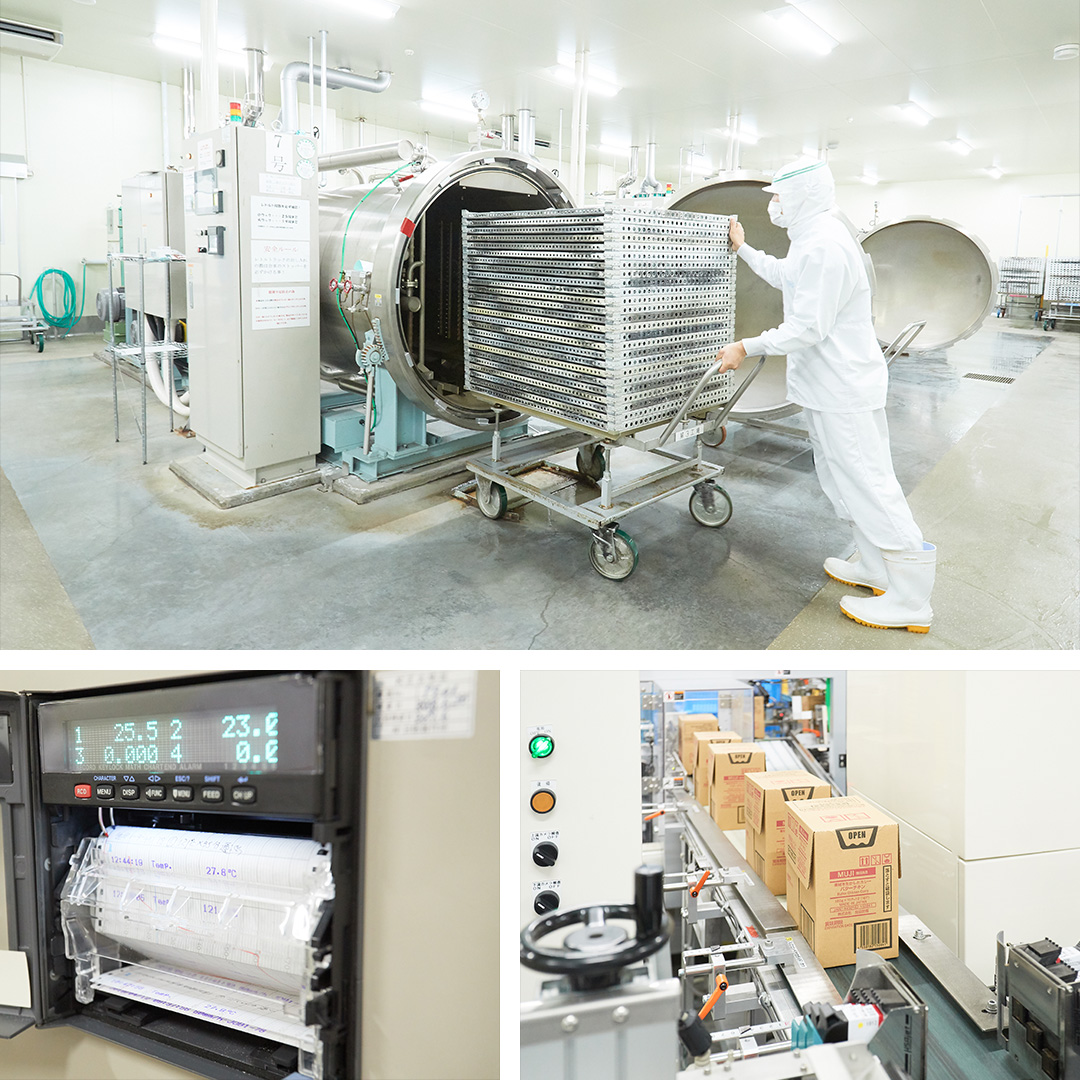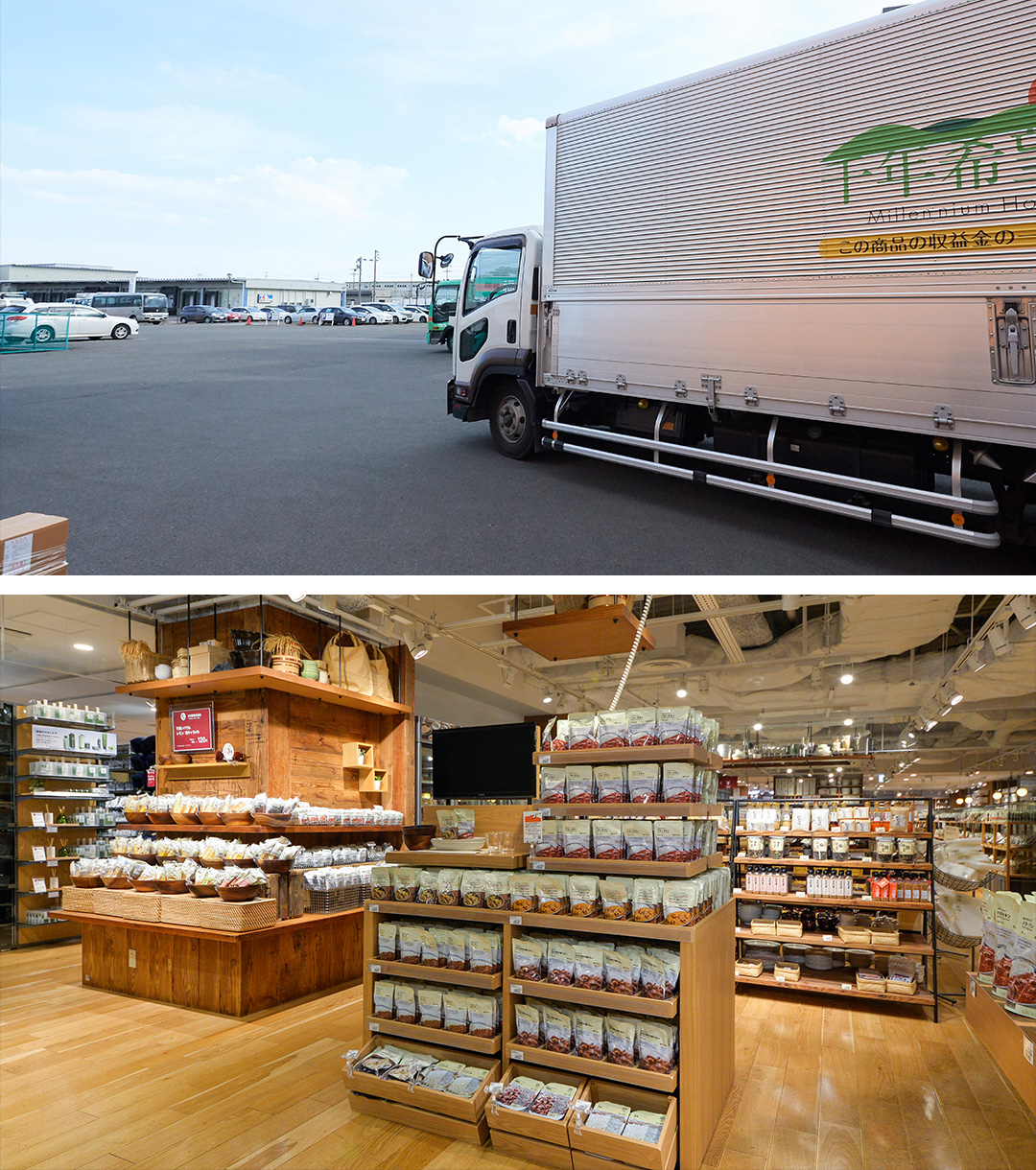
When we arrived the factory at 10am, most preparation work had been completed and the production line was about to begin its operation.
As a start, workers took out the ingredients measured in the day before and began to produce curry sauce. Each ingredient was poured into a large kneader by sequence and then mixed well. To make a flavourful curry sauce, huge amount of ingredients were needed. Take Butter Chicken Curry for instance, the sauce itself required up to 23 kinds of ingredients. Whereas a light-taste soup curry needed about 10 kinds of ingredients. When we got to taste the freshly made Butter Chicken Curry sauce, we could distinguish the pleasant taste of ginger and onion.

The freshly made curry sauce would be transferred to the packaging line, where curry sauce was mixed with ingredients measured by workers carefully. Under the help of a machine, the curry was well mixed, packaged and spread evenly on a tray, so that they could be heated evenly in the next step.

The curry was sent to a retort pot for sterilisation by heat and pressure. Through this process, the curry could be kept long in room temperature even without the use of preservatives. After sterilisation, the curry would undergo the steps of cooling and quality inspection, and finally be shipped to MUJI outlets around the world.

Although machinery is helpful in procedures like packaging, some fine steps still require the use of human hands. For example, the quality check of ingredients is as detailed as checking a corn grain by grain, making it hard to rely on machines. So instead of a dull factory, the production line of MUJI curry is more likely a huge kitchen composed of different worker's handwork.
